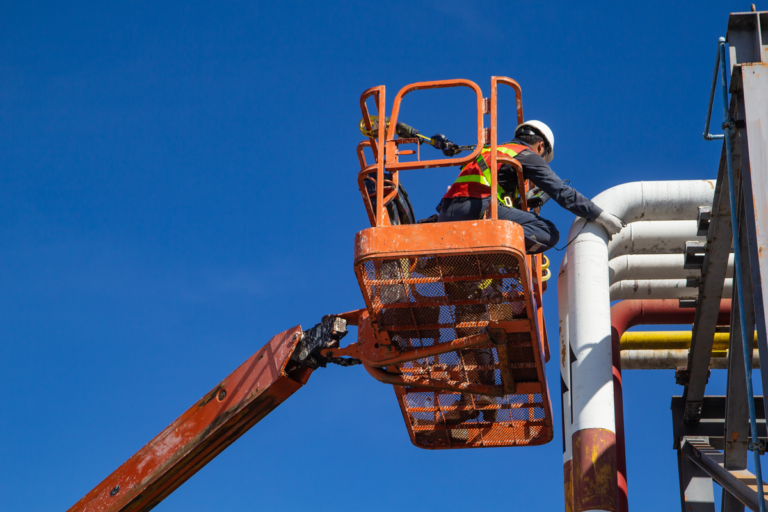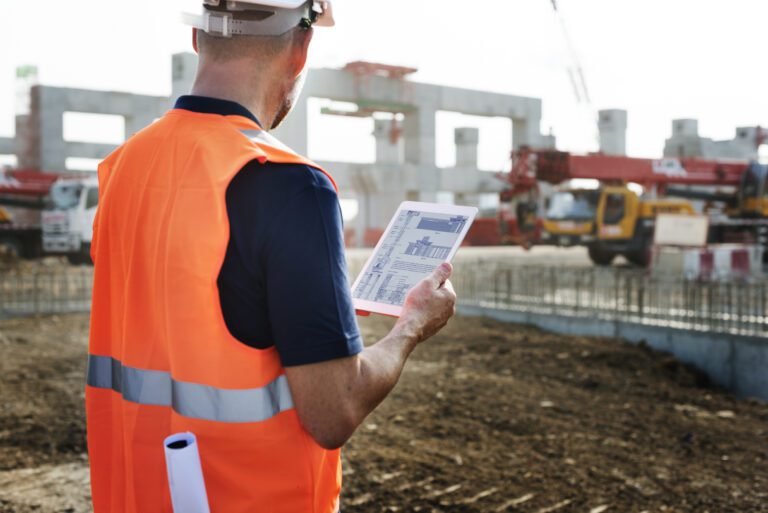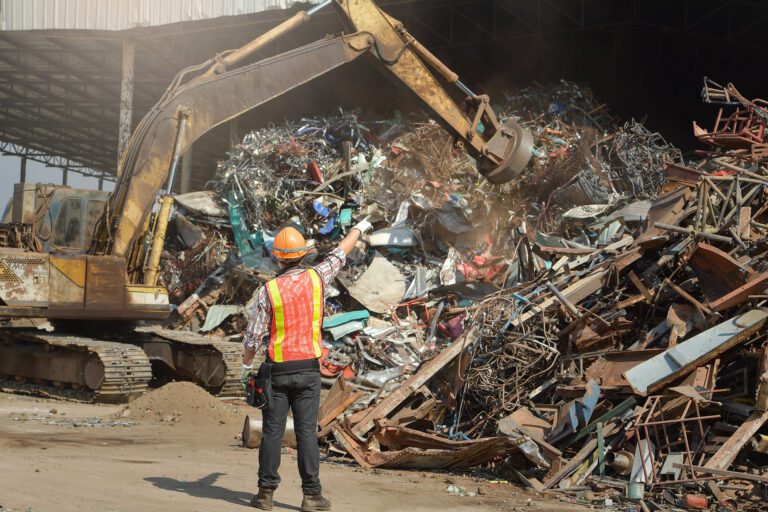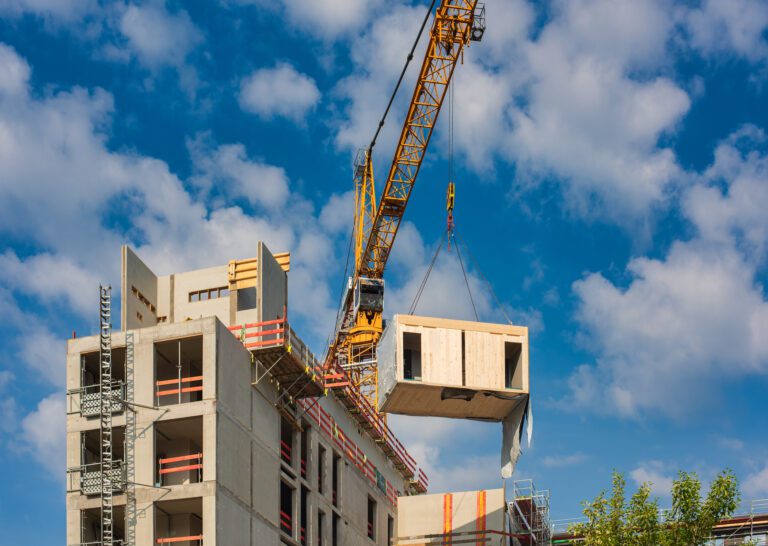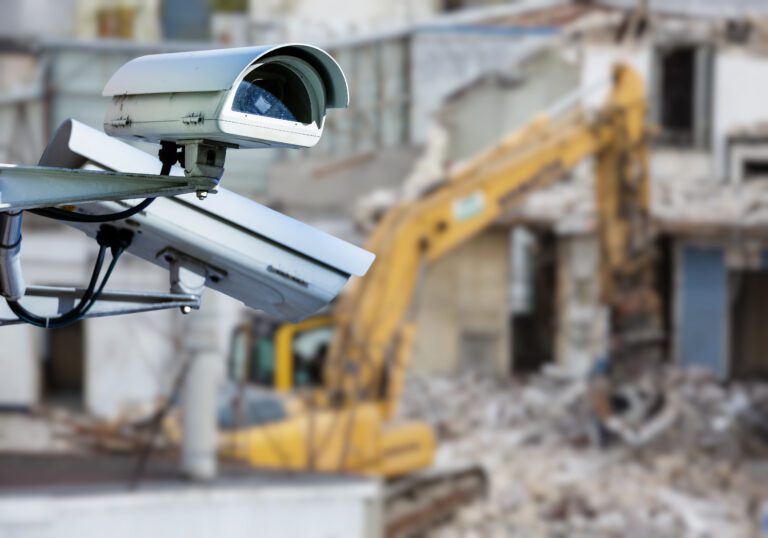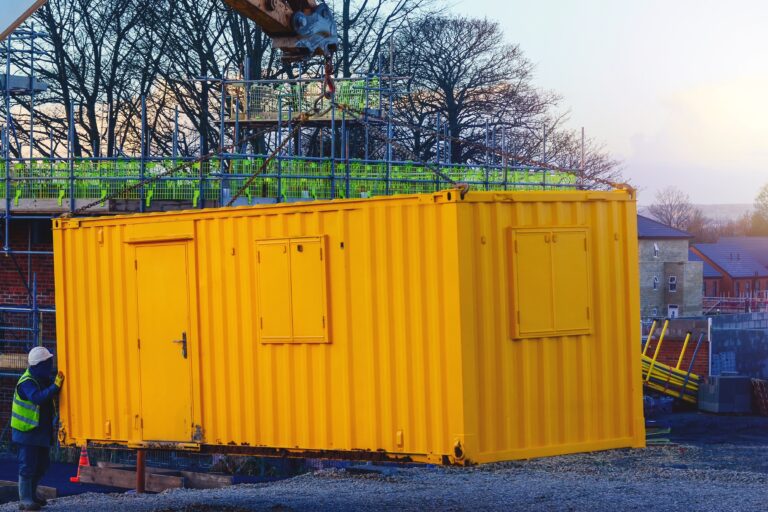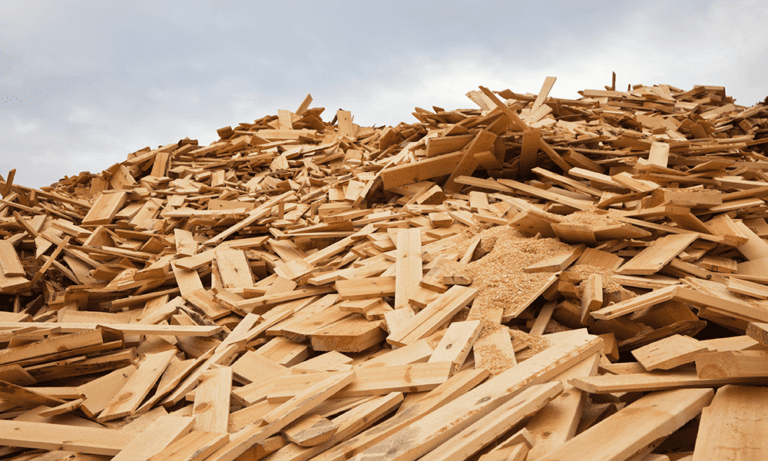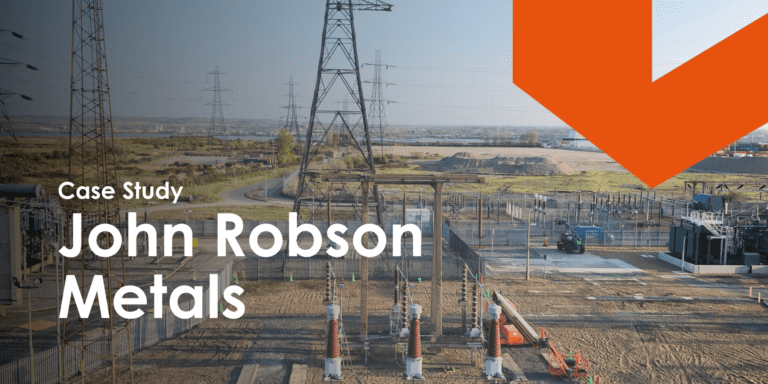29th March, 2022
Ear Defenders and the Importance of Protecting Your Ears on Site
Ear defenders are an important part of construction site safety as workers will be exposed to high volumes of noise. Read this post to find out more.
Ear defenders are one of the most effective ways of protecting your workers from construction noise.
When you’re working on a building site, being exposed to high volumes of noise is inevitable. There’ll be people drilling, cutting, sawing, and transporting heavy goods, so it simply can’t be avoided.
With that being said, it’s important businesses protect workers from these sounds where possible, as prolonged exposure to construction noise can be very damaging. In fact, workers could lose their hearing long term, if they are not provided with the correct PPE.
Whilst this is the worst case scenario, they could also experience tinnitus – an uncomfortable ringing noise in the ears, which can lead to anxiety and severe headaches.
Therefore, prevention is absolutely key.
In the workplace, it is the responsibility of management to provide the correct PPE which includes ear defenders. You should also try to limit noisy equipment where possible, and ensure employees are not using loud tools for a long period of time.
In this post we’re going to explore the importance of protecting your ears on a construction site, and how ear defenders can help.
Why Is Workplace Hearing Protection So Important?
When you’re putting together a health and safety policy for your construction site, it can be easy to only focus on the hazards you can see.
However, it’s equally as important to focus on the hazards you can hear, as this can be very damaging to the safety of your employees. Whilst noise control isn’t always top priority, it has to be taken as seriously as any other workplace hazard as loud conditions in the workplace can lead to serious health problems for workers.
As noted by Health and Safety England (HSE), industries with the highest risk of work-related hearing problems include the extraction energy and water supply sectors, as well as the manufacturing and construction field.
Loud noise at work can lead to temporary deafness, but prolonged exposure can lead to permanent hearing damage, which is why workplace hearing protection is so important.
Under HSE regulations, all businesses are required to:
- Provide employees with hearing protection when the noise level in the workplace exceeds a certain level, or when specifically requested. They must also ensure these protectors are properly used and maintained.
- Identify hearing protection zones, which are areas where the use of hearing protection is mandatory. They should also mark these zones with signs where possible.
- Provide all employees with training and information on how to use and care for their hearing protectors.
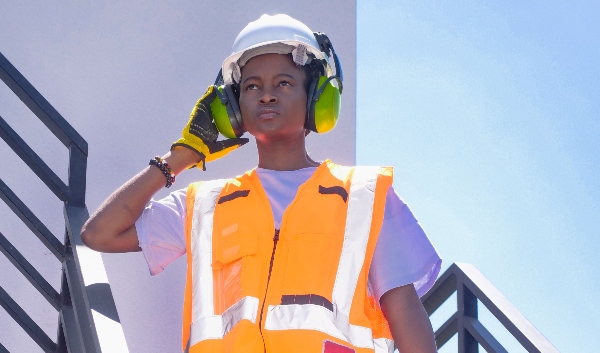
What Is Considered a Safe Level of Noise?
As a construction manager, you need to assess or estimate noise levels for different sites so that you can put appropriate controls in place.
The Noise Regulations define ‘exposure action values’, which are levels of noise exposure which, if exceeded, require you to take specific action.
Let’s take a look in more detail.
- Lower exposure action value – daily or weekly personal noise exposure (LEP,d or LEP,w) of 80dB. As a general rule of thumb, the noise level is probably 80db or more if the noise is intrusive but normal conversation is possible between people 2 m apart – comparable to a busy street, a typical vacuum cleaner or a crowded restaurant.
- Upper exposure action value – daily or weekly personal noise exposure (LEP,d or LEP,w) of 85dB. As a general rule of thumb, the noise level is probably 85 dB or more if it is necessary to shout to talk to someone 2 m away, for more than about two hours per day in total.
- Peak sound pressure – these very loud ‘impact noise’ levels can be more damaging than the daily / weekly noise exposures and present a risk of immediate and permanent hearing loss. The lower and upper action values for these are 135 and 137 dB (LCpeak) respectively. Damage caused by them will be in addition to any damage resulting from the daily / weekly noise burden.
If your employees are likely to be exposed to noise at or above the upper exposure action value, then you must take action to ensure their hearing is not damaged.
We’ve listed lots of ways that you can protect your employees to ensure they are happy and safe on a construction site, so keep reading to find out more.
What Are the Signs of Hearing Loss?
There are many signs of hearing loss and your quality of life can be greatly affected.
Below are some of the most common signs of hearing loss:
- Conversation becomes difficult or impossible
- People have trouble using the telephone
- They find it difficult to catch sounds like ‘t’, ‘d’ and ‘s’, and so confuse similar words
- They may suffer from permanent tinnitus (ringing, whistling, buzzing or humming in the ears) which can lead to other problems, including depression and loss of sleep
- Their family complains about the television being too loud
It’s important you identify these signs early on, as it increases your chance of being able to correct any hearing problems.
Common Types of Noise Hazards On a Construction Site
A construction site is always going to be a loud place to work, even when precautions are taken.
Regular 8-hour exposures to 85 dBA can damage your hearing. The higher the noise level, the faster the hearing loss.
So, what are some of the common causes of noise on a construction site?
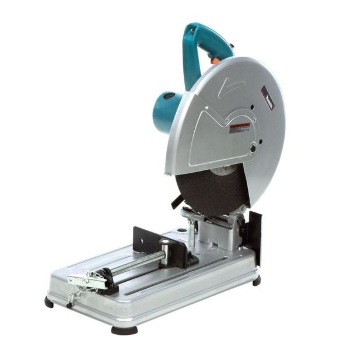
Metal chop saw
This tool is used for cutting metal pipes and steel sections. However, these saws are extremely loud and generate a great deal of metal dust. Therefore, correct hearing protection is required when using a metal chop saw, such as ear defenders or ear plugs.
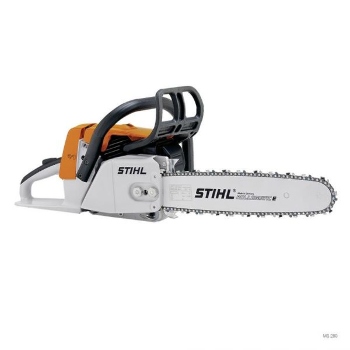
Chainsaw
On average, a chainsaw runs at approximately 106 decibels, which is around 8 times louder than a conversation. However, for the most part, chainsaws run at around 120 decibels at their loudest, which is 32 times louder than a conversation. Therefore, hearing protection must be worn to prevent long term hearing loss.
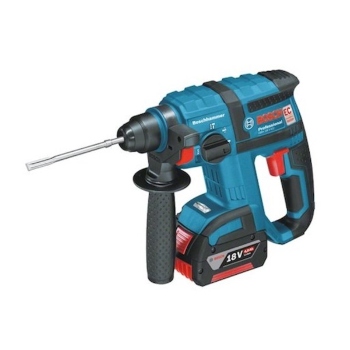
Hammer drill
Hammer drills drill holes and drive screws. However, they can also bore holes through concrete, brick, stone and other masonry materials. As such, they generate noise at a level of around 85 decibels, which is almost enough to cause hearing impairment.
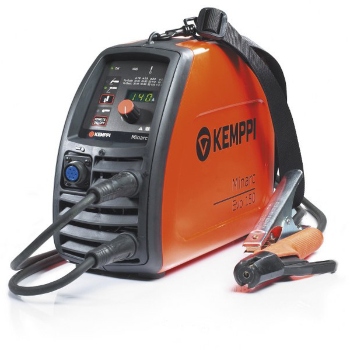
Welding machine
All welding machines generate noise but some processes are much noisier than others are, such as plasma cutting. Likewise some welding machines are noisier than others and some generate noise of a higher frequency.
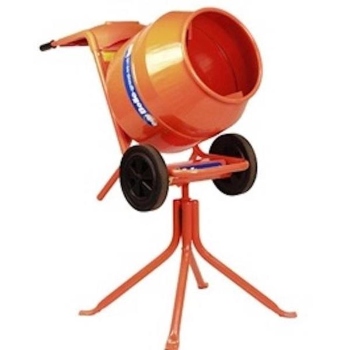
Concrete mixer
A concrete mixer combines large amounts of concrete and cement in an easy way. During operation, they run at a level of around 85 decibels. Therefore, constant exposure to this level of noise can result in long term hearing problems.
How to Keep Your Employees Safe
As a construction manager, your team is your responsibility. Whilst they are at work, it’s your duty to make sure they are safe, otherwise you could end up with lots of employees on the sick.
This is not an ideal situation when you have projects to finish and deadlines to meet. Fortunately, there are various things you can do to protect the hearing of your employees on site.
Let’s take a look.
Provide Personal Protection Equipment (PPE)
As we’ve touched on, your employees need to have the correct PPE to ensure they are safe throughout the working day.
Especially on a construction site, as there are lots of potential hazards which could put the safety of your team at risk.
There are various types of PPE including, ear defenders, ear plugs, eye goggles, high-vis jackets, hard hats, and steel-toe capped boots. All of these items ensure an employee is safe if an accident were to happen.
For instance, if a heavy tool such as a drill were to fall on an employee’s foot, their steel-toe capped boots would protect their toes from being broken. Similarly, if an employee were exposed to loud noise from a welding machine, or dump truck, then wearing ear defenders would protect their hearing.
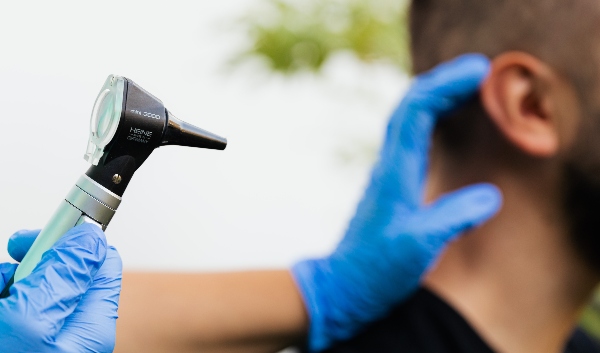
Provide Free Hearing Tests
Hearing tests inform your employees about the current state of their hearing. This is key in terms of prevention, as it allows them to identify any issues before they get worse.
By providing free, regular hearing tests to your workforce, they can keep track of their results and correct any areas of concern.
At a minimum, employees should have their hearing checked a few times a year – especially when they are working on a busy construction site. Testing is one of the most effective ways to test hearing before problems get worse and start to impact an individual’s quality of life.
The process is very simple and won’t take long, yet it goes a long way in ensuring the health and safety of your employees.
Promote Healthy Habits
There are various habits that can affect your quality of hearing – some of which you might not be aware of. Smoking for example, suffocates the cells throughout the body, including those in your ear canal.
To worsen the problem even further, smoking can cause imbalances in sugar levels which can be very damaging to your ears. Also, due to the fact your middle ear is connected to the back of your nose, it can be affected when you inhale nicotine.
Furthermore, damage to your ear can lead to problems with balance – a major hazard when you’re working on a construction site.
Therefore, as a construction manager, you should promote a smoke-free environment that encourages employees to lead a more healthy lifestyle. It’s not about imposing your own opinions, but instead, about promoting a healthier work culture that will support your team’s safety and wellbeing.
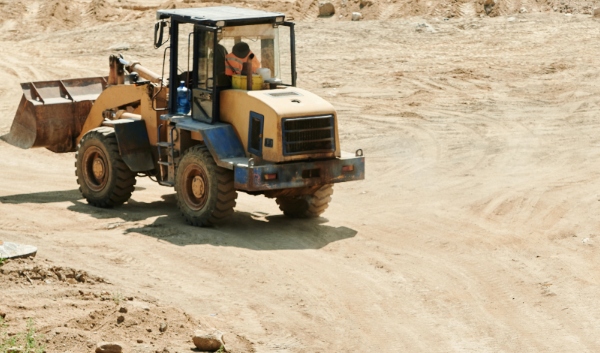
Use Alternative Processes that Generate Less Noise
Where possible, use alternative processes that are much quieter for your employees.
For example, use block cutters instead of cut-off saws, bursting or crushing instead of pneumatic drilling, boring instead of pile driving, and limit the number of vehicles reversing on site as reversing alarms add to overall noise levels.
You could also isolate employees from noisy vehicles by keeping doors and windows of cabins closed, or by using remote controlled equipment.
It’s also important to shut down vehicles and tools when they are not in use, as not only does this limit their noise output, but also reduces running costs.
Rotate Workers
It’s important to limit the time workers are exposed to noise, which can be made possible by rotating their tasks.
For example, make sure the same worker isn’t using a welding machine for days at a time. As we’ve discussed, prolonged exposure to high levels of noise can lead to permanent hearing damage.
Therefore, it’s important you include ‘quiet days’ when scheduling their work, and move employees onto different tasks to reduce their exposure to loud equipment. Essentially, this gives their ears a ‘rest’ and helps mitigate the possibility of noise-induced hearing loss.
Hire Good Quality Equipment
Hiring good quality equipment has to be your priority.
At YardLink, we provide a range of machines that offer quiet operation to protect the hearing of your employees on site.
This helps you reduce overall construction noise, whilst still enabling your team to complete jobs on budget and on time. From excavators, to skips, to surveying tools, all of our equipment is competitively priced, and can be delivered to site the next working day.
And even better. You can hire all of your equipment from one central hub! Simply set up your online account, and find everything you need at your fingertips.
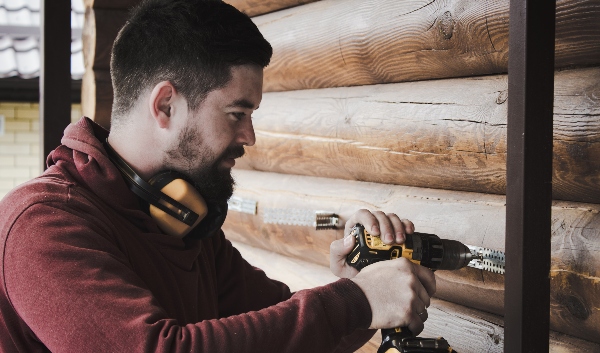
Ear Defenders and the Importance of Protecting Your Ears on Site
For any construction worker, it’s important to protect your ears on site. This includes wearing the correct PPE (such as ear defenders or ear plugs), only spending short bursts of time operating loud machinery, and getting regular hearing checks.
As a construction manager, it’s your responsibility to ensure these safety measures are implemented across your construction site.
Due to the nature of the job, you’re never going to be able to mitigate noise altogether due to the range of tools and equipment in use. However, there are various things you can put in place to ensure workers are equipped with the necessary ear protection so they can avoid any long term hearing damage.
Whether they’re using saws, welding machines, drills, or material handling equipment, ear defenders will help reduce noise levels and keep them safe.
As we’ve discussed, one of the best ways of making sure your employees are kept safe is to hire high quality equipment. At YardLink, we provide a range of tool hire suited to the needs of your project.
We also supply tools that have quiet operation to help keep your team’s noise exposure to a minimum. Furthermore, we offer a range of electric construction equipment which are much quieter than conventionally operated machinery, with the added benefit of being better for the environment.
To find out more, get in touch!
YOU MIGHT ALSO BE INTERESTED IN

